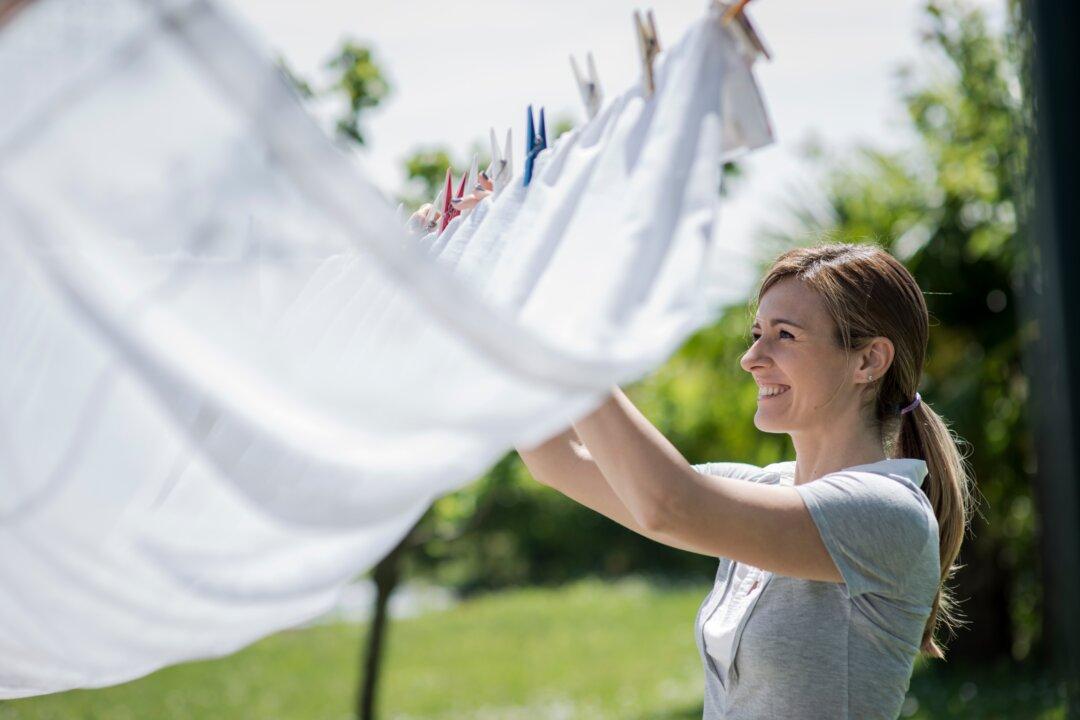Commentary
Nothing will shake your faith in technology like your first experience of using a clothesline. The clothes are dried with sun and breezes and come out fresh, sanitized, and wonderful. This is especially true for whites. The sun acts as a natural bleach and actually brings back brightness that all whites have lost over the decades. The comparison with an electric dryer is shocking. To my amazement, clothes hung on a clothesline actually dry faster!





